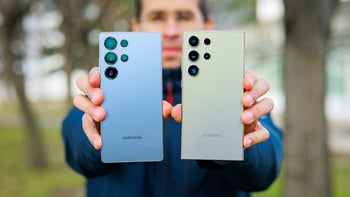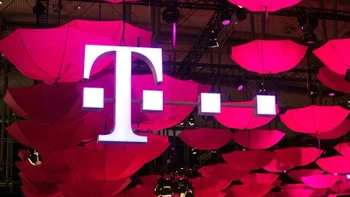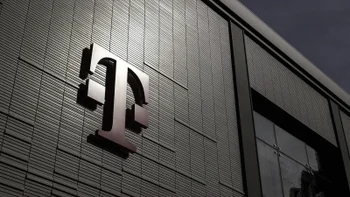It may be too late for the Galaxy S25, but the S26 Ultra may finally come with the long-rumored battery-stacking tech
We may earn a commission if you make a purchase from the links on this page.

The Galaxy S24 Ultra. | Image Credit - PhoneArena
A new report suggests that Samsung is developing batteries with stacked technology which could help the company offer future Galaxy flagships, such as the Galaxy S26 Ultra, with a 5,500mAh battery without making them bulkier.
Also read:
This year, the Galaxy S25 Ultra is likely going to come with the same 5,000mAh battery that Ultra phones have sported since... well, the dawn of time. Meanwhile, we have smartphone brands from China surprising us with huge battery capacities on their flagship smartphones for at least a year thanks to silicon carbide (SiC) batteries. Examples include the Honor Magic 7 Pro, OnePlus 13, Oppo Find X8 Pro and others, all sporting batteries above the 5,500mAh mark.
However, Samsung is reportedly taking a different approach to ensure you won't toss a Galaxy S26 Ultra in the trash for a lack of battery upgrades. Samsung SDI is said to be working on batteries with stacked technology. The tech would ensure around 10% higher energy density compared to the traditional method.
Chinese phone makers have bet on SiC batteries for a 10% higher energy density in comparison to Li-ion. Using this tech, brands have been offering flagship phones with 5,500 and 6,000mAh batteries with no increase in thickness. And that's, understandably, something many people love.
Samsung seems to be sticking with Li-ion and thus the Galaxy S24 Ultra and likely the upcoming S25 Ultra are stuck with 5,000mAh battery cells. The stacking method, just like using a SiC battery, would allow a 10% higher energy density. Likely Samsung will reserve this method only for flagships though (as its manufacturing is expensive) so don't expect to see a huge battery on a Galaxy A phone anytime soon.
One thing that's important to mention though: this isn't entirely new. Rumors about Samsung working on the stacking technology for batteries have been circulating the internet for a couple of years now but have yet to materialize. So don't get your hopes too high just yet.
Meanwhile, Samsung's main competitor, Apple, has been using stacked batteries for iPhones since the iPhone 15 series, which debuted in 2023.
So, while Samsung has some catching up to do with certain Chinese manufacturers, battery life doesn’t seem to be a major concern for its flagship devices at the moment.
A new report suggests that Samsung is developing batteries with stacked technology which could help the company offer future Galaxy flagships, such as the Galaxy S26 Ultra, with a 5,500mAh battery without making them bulkier.
Also read:
This year, the Galaxy S25 Ultra is likely going to come with the same 5,000mAh battery that Ultra phones have sported since... well, the dawn of time. Meanwhile, we have smartphone brands from China surprising us with huge battery capacities on their flagship smartphones for at least a year thanks to silicon carbide (SiC) batteries. Examples include the Honor Magic 7 Pro, OnePlus 13, Oppo Find X8 Pro and others, all sporting batteries above the 5,500mAh mark.
Chinese phone makers have bet on SiC batteries for a 10% higher energy density in comparison to Li-ion. Using this tech, brands have been offering flagship phones with 5,500 and 6,000mAh batteries with no increase in thickness. And that's, understandably, something many people love.
One thing that's important to mention though: this isn't entirely new. Rumors about Samsung working on the stacking technology for batteries have been circulating the internet for a couple of years now but have yet to materialize. So don't get your hopes too high just yet.
Meanwhile, Samsung's main competitor, Apple, has been using stacked batteries for iPhones since the iPhone 15 series, which debuted in 2023.
It’s worth mentioning that other things matter when it comes to battery life, not just the capacity of the battery itself. The processor's optimizations, heat management, and software also play a big role in battery life. For one, the Galaxy S24 Ultra managed to beat the iPhone 15 Pro Max and last longer in two out of three of our battery life tests (browsing and gaming) and even outlasted the 16 Pro Max in 3D gaming by nearly two hours.
So, while Samsung has some catching up to do with certain Chinese manufacturers, battery life doesn’t seem to be a major concern for its flagship devices at the moment.
Follow us on Google News










![A new Android bug is making it impossible to install new apps. Are you affected? [UPDATE]](https://m-cdn.phonearena.com/images/article/176703-wide-two_350/A-new-Android-bug-is-making-it-impossible-to-install-new-apps.-Are-you-affected-UPDATE.webp)

Things that are NOT allowed:
To help keep our community safe and free from spam, we apply temporary limits to newly created accounts: